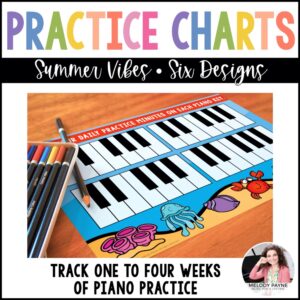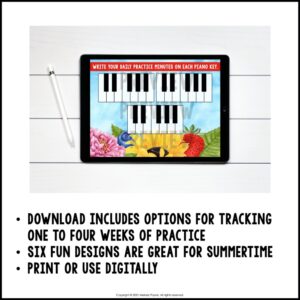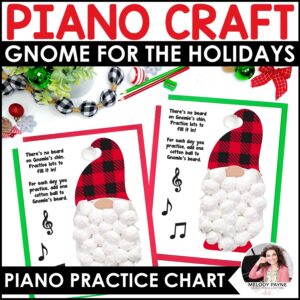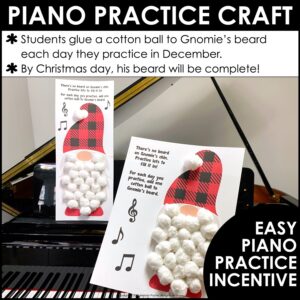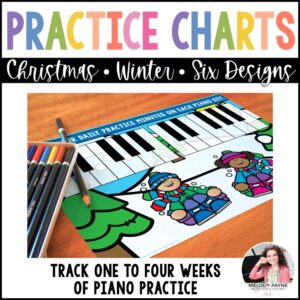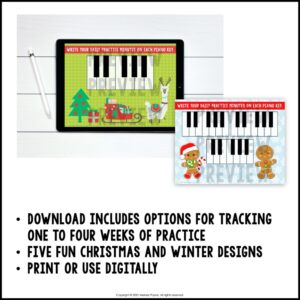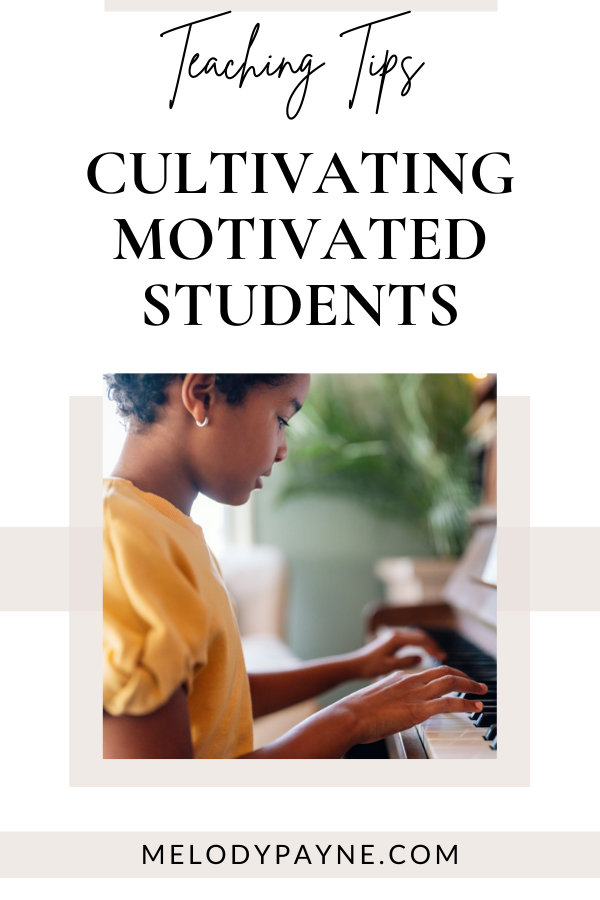
How to Host a Piano Practice Challenge
This post may contain affiliate links. If you purchase something through an affiliate link, I will receive a small commission at no cost to you. For more information, read the disclosure statement here.

Have you ever considered hosting a piano practice challenge in your studio?
I love challenging my students to practice a specific number of pieces, measures, pages, minutes, days, at a predetermined tempo, or accomplishing a specific goal or goals over a short period of time.
Why? Because practice challenges are highly beneficial to students in a number of ways.
How Practice Challenges Benefit Students
- Help students stay on track when preparing for a recital or other performance
- Get students back into the swing of things after a break or at the beginning of the piano year
- Promote consistency in practicing
- Friendly competition
- Require more practicing than some students would normally accomplish on their own
- Some students thrive on being challenged
- Grouping students together can promote teamwork to be successful in the challenge
- Promote responsibility and accountability
- Help build internal motivation over time
- Show students they are more capable than they may have thought
- Encourage creativity in practice time (fitting in a few extra minutes before school, after dinner, etc.)
Why Practice Challenges Really Work
You know what I love about practice challenges? There’s actually research that backs up what we see happening in our studios!
Music education researchers have found that when students set goals, track their progress, and reflect on how they’re doing, they make much better progress in their musical learning (McPherson & Renwick, 2011)!
What’s happening during our practice challenges is that students are naturally developing better practice habits.
When they know they need to write down their practice minutes or check off their goals each day, something wonderful happens—they start thinking more intentionally about their practice time.
Instead of just sitting down and playing through pieces, they become more focused on actually accomplishing something specific.
Here’s the really cool part: Research shows that when students start developing these self-regulation skills (like setting goals, keeping track of how they’re doing, and thinking about their practice), it actually boosts their internal motivation!
They start wanting to practice more because it feels good to accomplish their goals (Ryan & Deci, 2000)!
I’ve noticed this in my own studio too!
Students who participate in challenges start telling me things like “I realized I needed to slow down and really work on that tricky passage” or “I found an extra 10 minutes to practice before dinner.”
They’re becoming more aware of how they practice, not just how much they practice.
When we set up challenges with clear goals and a specific timeframe (like our 2-week challenges), students feel like the goal is totally achievable.
Research shows this sweet spot of “challenging but doable” really motivates students and keeps them engaged.
Plus, when the whole studio is doing it together, they get that extra boost of encouragement and support!
Check out These Practice Charts & Practice Crafts
-
Summer Piano Practice Charts for Music & Piano Lessons – Piano Key Practice Logs
- $4.00Earn 4.00 Reward Points
- Add to cart
-
Easy Christmas Piano Practice Craft – Gnome For The Holidays Practice Chart
- $3.00Earn 3.00 Reward Points
- Add to cart
-
Major and Minor Scale Trackers for Piano Lessons, Band, Orchestra, & More
- $7.00Earn 7.00 Reward Points
- Rated 5.00 out of 5
- Add to cart
-
Christmas & Winter Piano Practice Challenge Charts for Music & Piano Lessons
- $5.50Earn 5.50 Reward Points
- Add to cart
The Rules of the Practice Challenge
- Our challenge is 2 weeks long: Long enough to be beneficial, but short enough to feel attainable.
- For practice challenges that are based around minutes practiced, students write down the number of minutes they practice each day on the corresponding piano key.
- My students are required to practice, for example, at least 20 minutes a day, for 5 days each week during the challenge.
- Students who meet the goals of the challenge (and goals do change for each challenge) will have their names placed into a drawing to win a gift card!
- I check their practice minutes (or goals, pages, tempo, etc.) during their lesson and provide praise, encouragement, motivation, or whatever my students need throughout the challenge.
- At the end of the challenge, they text a picture of their practice challenge chart to me or bring their chart to their lesson.
- I check to see who qualifies for the drawing and add their names to the Decide Now app for iPad.
- I video myself spinning the wheel to see who wins the gift card!
- Then I text the video announcement to my piano families.
- Last, I send the gift card to the winner.
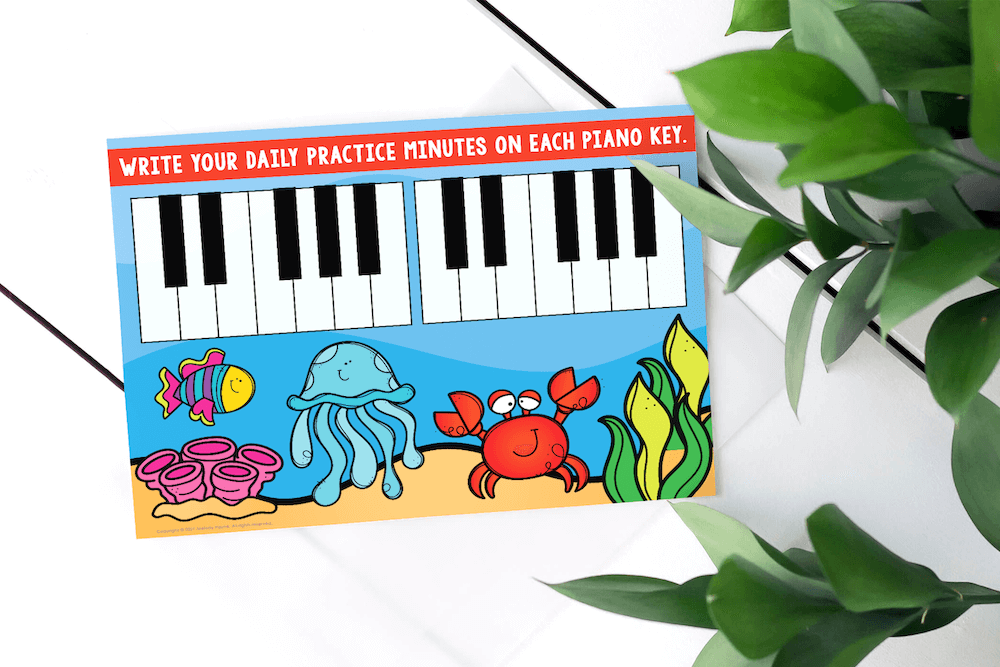
How to Host Your Own Piano Practice Challenge
- Download a set of practice challenge charts:
- Print them and give them to your students. I like to print them onto white card stock.
- Pro tip: Print them 4 to a page and give your students the 1/4 page practice card instead of a full page.
- If you’re teaching 100% online, you may email the charts to your students and have them print the charts or complete them on their phone or iPad.
- Share the rules of the challenge with your students and their parents.
- Let the challenge begin!
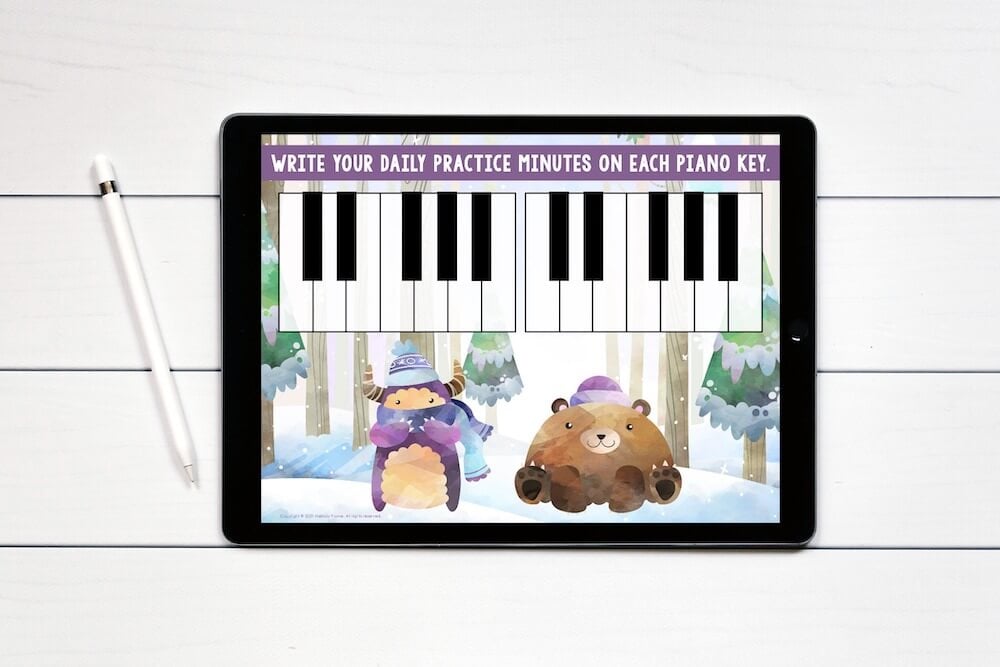
Share About Your Studio Practice Challenge
- Join my Facebook group for piano teachers and let us know how your studio practice challenge goes! Be sure to answer all of the membership questions to be admitted into the group. I look forward to seeing you there!
- Follow me and tag me on Instagram when you share photos or videos of your practice challenge: @melodypaynepiano
- Follow my page and tag me on Facebook when you share photos or videos of your practice challenge: Melody Payne – Music for a Lifetime
References
Martin, A. J., Collie, R. J., & Evans, P. (2016). Motivation and engagement in music: Theory, research, practice, and future directions. In J. Fleming, R. Gibson, & M. Anderson (Eds.), The arts, motivation and engagement: How the arts make a difference (pp. 169–185). Routledge.
Ryan, R. M., & Deci, E. L. (2000). Self-determination theory and the facilitation of intrinsic motivation, social development, and well-being. American Psychologist, 55(1), 68–78.
Don't miss out!
Follow on Facebook and Instagram, join the best Facebook group for piano teachers, and subscribe to the newsletter to get helpful teaching tips, resources, and tutorials delivered straight to your inbox every week.
Melody Payne
Melody Payne
Welcome!

Hi! I’m Melody Payne, a pianist and piano teacher, educational resource author, a fun-loving wife to the most wonderful and talented hubby I could ask for, and a lifelong learner who loves to share. I want to make your life as a music teacher easier by writing and sharing helpful and relevant music teaching articles, and by creating educational resources with your very own students in mind. If you are a parent who wants to enroll your child in piano lessons, I’d love for us to get started building those skills that can give your child a lifetime of musical enjoyment!

